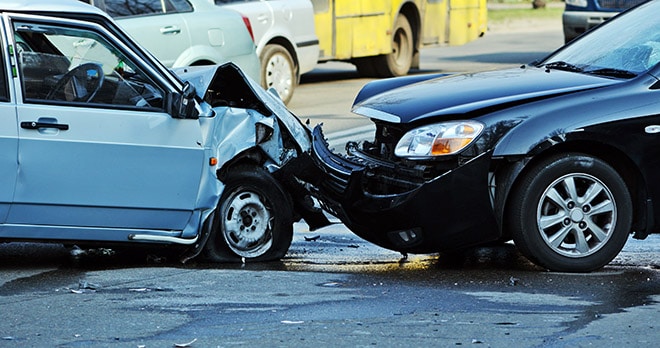“What should I do after a car accident?”: A step-by-step guide

At the time of the accident
Stop - You must stop at the scene, even if you and your car are OK. The other party may not be so lucky.
Check - You need to check if anyone has been injured or if there has been any damage.
Exchange - You need to exchange details with the other party’s to the accident. This should include:
- their name
- their address
- their insurance details
- the make and model of the other car.
Photograph - You need to take pictures of the damage sustained and the position of any other vehicles involved. Again, you might need to rely on these later with your claim.
Report - You must report the accident to the police if someone has been injured, if damage was caused and the other party did not stop, or if damage was done and the other party stopped but no details were exchanged. If you do report the incident to the police, you will have seven days after the incident to provide your insurance details.
It is a good idea to make a note of the time and date; it will be much easier than trying to work it out later. Take the details of any witnesses to the incident as you might need to ask them for a witness statement at a later date.
You can never predict when you may be in an accident or how you are going to react. You are very likely to be shaken and emotional but this is a key time to gather as much information as you can. This will be very beneficial to you later on if you come to make a claim.
The week after the accident
In the week after the accident you will have had time to process and reflect on the events of the accident. This is when you need to contact your insurer to let them know what has happened.
If you feel like you have suffered an injury that you did not notice at the time of the accident, make sure that you get it checked out at the earliest possibility. It is very important you seek medical advice for any injuries because any visits to a medical practitioner will be recorded. If you do come to make a claim, with your permission we will request your medical records, which we will be use to evidence the extent of your injuries.
If you required any medical attention, make sure that you keep all correspondence and documents that you are given from the hospital or GP as this will be used to evidence your injuries.
It is also vital to keep an up-to-date and accurate record of any time you had off work or for any additional expenses you have incurred as a result of the accident i.e. those which you would not have had to deal with if the accident had not occurred. These may be recoverable in your damages.
Contact eye witnesses to ask if they would be prepared to write a statement of what they saw. If the police were involved in the incident, they would have taken contact details and accounts from the witnesses. These will prove very handy to support your claim.
In the month after the accident
If you feel that the accident wasn’t your fault and that you want to make a claim for a personal injury that you suffered or because of the other party’s negligence. The process can take longer than you think so it is always best to get in touch with specialist personal injury solicitors as soon as possible, even if you are not sure whether you have a claim.